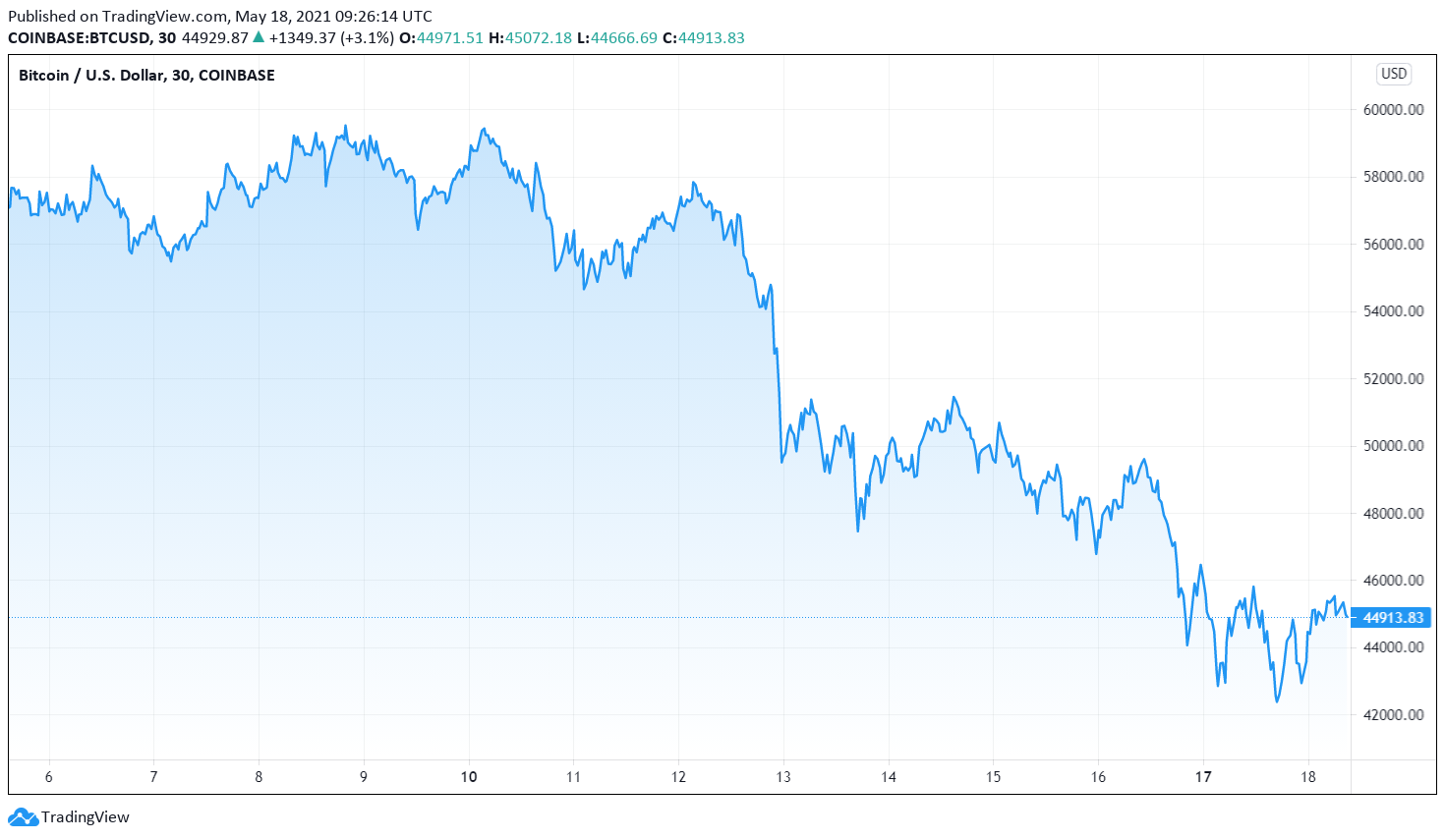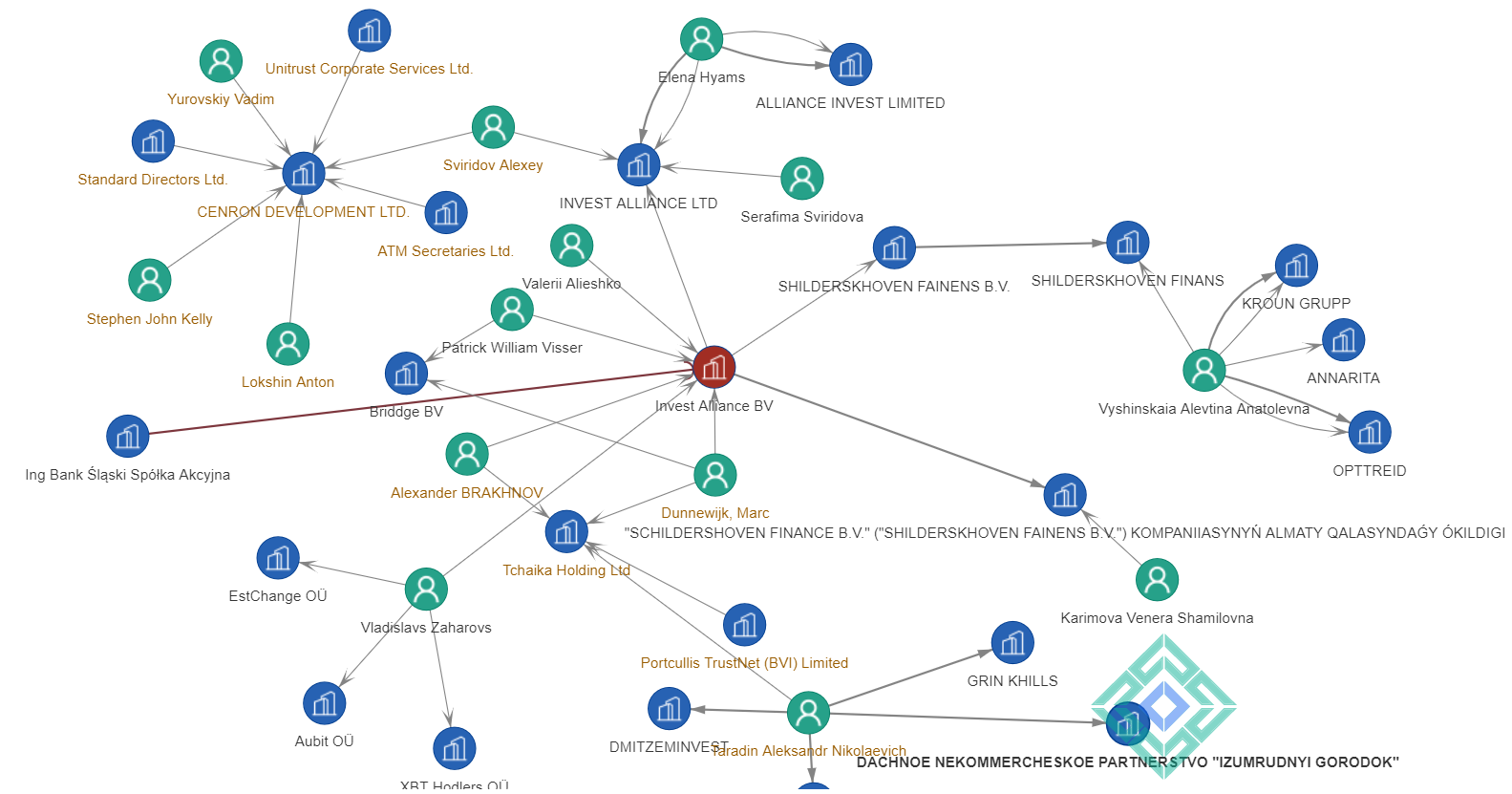
Bitcoin, Dogecoin, Carbon, Twitter, Tesla… We have learnt from Elon Musk’s tweets that Bitcoin is not good for the environment. We have also learnt that the price of Bitcoin and most Altcoins can be easily impacted by social media influencers. If this event was taking place in a classic regulated financial market, a watchdog like the SEC would have jumped to take care of business. But, the world of alternative investments is the “Wild West”, where the outlaws do not have a Colt with many bullets, but a Twitter account with many followers. Is it too easy to manipulate cryptocurrencies with social media?
Alternative investments and cryptocurrencies, in particular, have many innate vulnerabilities due to their lack of efficiency. Bitcoin emerged to disrupt the financial system and not to save the planet from global warming. Musk’s tweet has led to a disruption in Bitcoin pricing, its value plunging close to 42,000 USD.
Many securities frauds including market manipulation, pump and dump and Ponzi schemes can be enhanced with the use of social media. A typical process for manipulating a cryptocurrency can be synthesized as follows:
- Target a cryptocurrency sensible to news and announcements.
- Build up one or a few social media (Twitter) accounts with a significant number of followers
- Conceive a strategy leveraging the impact of new information on prices and execute relevant trades on that market
- Spread a piece of new information that alters the supply-demand equilibrium, thereby creating a price shock.
- Reverse the market trades previously taken.
The recent developments on Dogecoin and Bitcoin fit perfectly the case described above. It would be interesting to know, who are the people behind the big trades executed around the date when Musk tweeted that Tesla does not accept any more payments in Bitcoin.
The U.S. Securities and Exchange Commission (SEC) is aware of such risks and created in 2013 a special unit dedicated to track and investigate stock manipulation with social media. In January 2021, the SEC’s Office of Investor Education and Advocacy (OIEA) issued an alert warning retail investors of the risks of investing based on social media. The alert specifically cautions investors about making short-term investments in volatile markets and the resultant potential for market manipulation on online platforms.
While market watchdogs seem to have taken serious steps to prevent small-cap stock manipulation, the situation in the crypto-arena exposes retail investors to massive risks. One tweet can generate a market collapse, like that observed on Bitcoin which lost almost 15,000 USD following Musk’s announcements.
Bitcoin’s initial aim was to democratise banking and monetary services. But, we all know that democracy comes at a price.

“Tesla has suspended vehicle purchases using Bitcoin due to climate change concerns. We are concerned about rapidly increasing use of fossil fuels for Bitcoin mining and transactions, especially coal, which has the worst emissions of any fuel.”
Elon Musk, Tesla CEO
Focus: ING and Invest Alliance BV
For years ING, the leading Dutch bank has allegedly helped Russian and Ukrainian oligarchs move huge sums of money out of ex-Soviet Union countries. The resultant 900 million USD of penalties was justified by the bank’s insufficient in properly assessing and managing its exposure to financial crime risk. Could ING have avoided that fine?
The answer is affirmative.
Invest Alliance BV a Dutch-registered company know as Schildershoven Finance. The company operates for over 25 years. If ING was performing a simple KYC on this firm, it would have not revealed a significant level of risk. Nevertheless, when looking at its underlying network things are different.
- The company has a homonymous firm in London, controlled by Russian citizens
- One former director appears in the Panama Papers controlling companies in the British Virgin Islands, jointly with another person that own multiple businesses in the Russian federation
- A former director controls companies in Estonia
- Most important Invest Alliance BV has also a subsidiary in Moscow incorporated in the early 2000s
- The company has also a subsidiary in Kazakhstan in the city of Almaty incorporated in 2011.
Subsidiaries in ex-Soviet countries, ties with Baltic countries, relationship in offshore jurisdictions, high complexity network... In the light of this analysis, Invest Alliance BV reunites all ingredients of a recipe for high exposure to money laundering and sanctions violations.
Schildershoven Finance B.V was one of ING’s clients. In 2014 alone, Schildershoven’s operations at the bank amounted to 1.2 billion USD. In fact, Invest Alliance (Schildershoven Finance B.V.) was one of the companies that were at the origin of the suspicious activities on ING’s Polish (Slaski bank) subsidiary in relation to Russian money laundering.

The word on the street: Knights of Coke (III)
In early April, the Dubai Police has arrested a prominent figure of the French organised crime. Moufide ‘Mouf’ Bouchibi, 39, is a French citizen involved in international drug trafficking and smuggling operations across Europe. He is one of the leading cocaine suppliers for Paris wholesalers. His alleged ties with the South American cartels put him in a key position to introduce cocaine in France at competitive prices. The estimated annual street value of his drub business is around 70 million euros.
After the last figures of the old French organised crime known as the “milieu” disappeared throughout the 2000s, the underworld became very fragmented, with different rackets being controlled by smaller and less organized groups. Few names made their reputation over the past decade climbing to the top of the trophic chain. Bouchibi, known as ‘The Ghost’ is one of those figures and had been a fugitive for the past 10 years. He forged several fake identities and managed to travel abroad until his capture in Dubai.